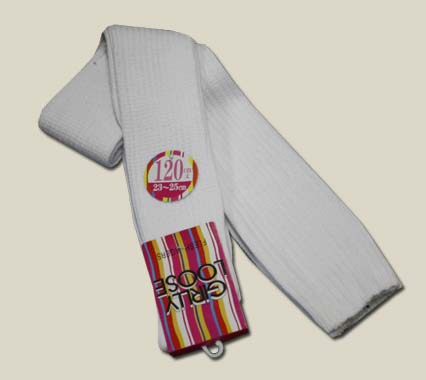The next time you utter the phrase “walk to work,” you’ve just done something that’s very difficult for Japanese ESL learners. English is an especially rich language with a bazillion sounds borrowed from many sources, and it can be really difficult for phonetically-challenged Japanese speakers to master these strange sounds. Words like “walk” and “work” may seem simple to you or me, but rendered into katakana they sound nearly the same, making it hard for the poor nihonjin to keep them straight. Japanese is famous for lacking separate concepts of “L” and “R,” which creates a world of problems with words like right and light. If you were to purchase the awesome Japanese baggy Loose Socks that J-List sells, you’d see the mysterious phrase “Flesh Agers” written on the tag, which we’re pretty sure describe girls who are enjoying their “fresh age” (which is only slightly more comprehensible). From the Japanese point of view, English just seems needlessly complex. For example, the first syllable of mashed potatoes, mushroom and marshmallow are all identical when reduced to the Japanese syllabery system, and if you tried to teach these differences to ESL students they’d probably run screaming from the room faster than you could say “crash, clash, crush.” There are other phonetic land-mines built in Japanese: for example the syllable si (as in the word sit) is pronounced shi, creating a huge potential for problems when inviting someone to sit in your living room.

Are you a “Flesh Ager”? Good, if so.















